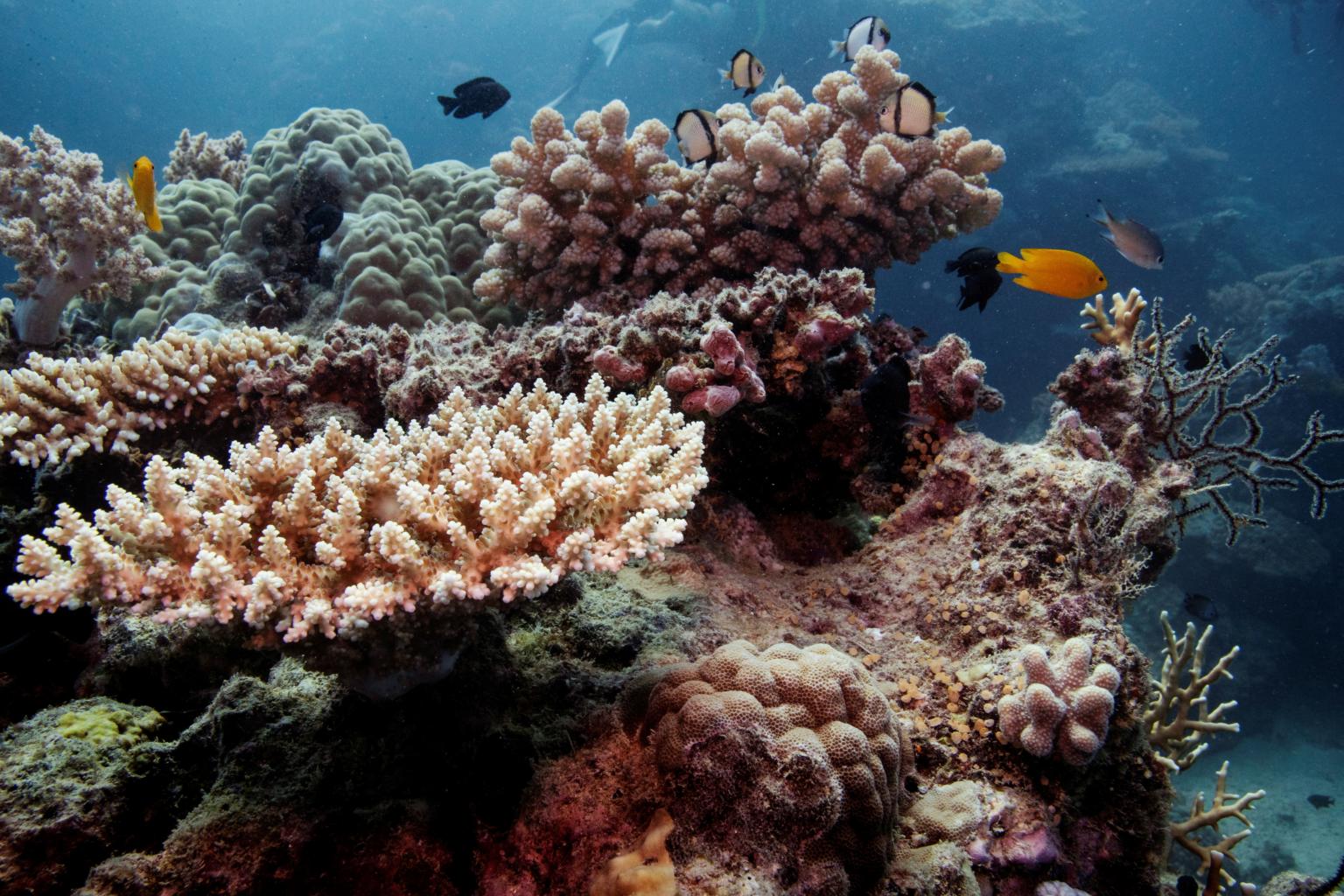Australia pledges $955m for Great Barrier Reef, but climate change threat looms
Sign up now: Get insights on Asia's fast-moving developments

The pledge is in addition to more than A$2 billion already outlined in the federal government's Reef 2050 Plan.
PHOTO: REUTERS
SINGAPORE - The Australian government has pledged an additional A$1 billion (S$955 million) to protect the health of the Great Barrier Reef, but some scientists say this will do nothing to reduce the main risk to its future: climate change.
Emissions from burning fossil fuels are heating up the oceans, causing marine heatwaves that have triggered widespread damage to the world's largest coral reef ecosystem in recent years. Yet the government has been criticised internationally for its weak climate targets and for backing fossil fuel exports.
The funding plan, which comes just months before a national election, was formally unveiled on Friday (Jan 28) by Prime Minister Scott Morrison and Environment Minister Sussan Ley near Cairns in north Queensland, a state that is a major coal and liquefied natural gas (LNG) exporter.
Mr Morrison's ruling Liberal-National coalition faces an election fight in a number of seats that border the 2,300km reef, including the federal seat of Leichhardt that incorporates Cairns, a major gateway to the reef.
“What we have been doing throughout our term is ensuring that we’re putting the reef first, because when you do that, everybody else benefits,” Mr Morrison said, pointing to the more than 60,000 people who rely on the reef’s tourism industry, which generates more than A$6 billion annually.
Ms Ley said: “We know that climate change is the biggest threat to the reef and we play our part internationally when it comes to emissions. But we also know that building a healthy and resilient reef is absolutely the best thing we can do in the face of those pressures.”
The opposition Labor Party criticised the plan as an election ploy, saying that if the government was truly committed to saving the reef, they would do more to tackle climate change.
The A$1 billion funding over nine years includes nearly A$600 million to improve water quality, covering work on erosion, land condition and reducing run-off of pesticides and nutrients from cattle farms, sugar cane and banana crops.
Another A$253 million is for reef management and conservation, including work to control coral-eating crown-of-thorns starfish and prevent illegal fishing. A further A$92.7 million is to assist programmes to boost reef restoration and adaptation to climate change.
The pledge is in addition to more than A$2 billion already outlined in the federal government's Reef 2050 Plan.
Scientists, however, said there should be a stronger focus on addressing climate change risks to the reef.
Fears are growing for the future of the reef because of rising global temperatures and heat being stored in the oceans. Corals bleach, or turn a ghostly white, when exposed to long periods of above-average water temperatures. If the temperature does not return to normal levels within a few weeks, the corals can die.
Three mass bleaching episodes in 2020, 2017 and 2016 led to widespread loss of shallow water corals on the Great Barrier reef, greatly hurting the reef's natural ability to recover.
"This injection of federal government funding is crucial in ensuring that we still have iconic Great Barrier Reef ecosystems for future generations to enjoy and sustainably build their livelihoods upon," said Dr Karen Joyce, a senior lecturer at James Cook University in Queensland.
But "with increasing sea surface temperatures arguably one of the greatest stressors for the reef, we must not lose sight of this challenge", she said.
Last year, the measurement of global ocean heat, called ocean heat content, reached another record - the sixth in a row.
"Unless you are cutting emissions deeply this decade, the situation on the reef will only get worse. This is essentially like using a bunch of Band-Aids to try and mend a broken leg," said Dr Lesley Hughes, professor of biology at Macquarie University, and a member of Australia's Climate Council, a non-profit climate change communications organisation.
Last year, Unesco warned that it intended to list the Great Barrier Reef as "in danger". The Australian government successfully staved off an immediate listing. It is due to submit a report to Unesco in February that outlines how it is protecting the reef.


